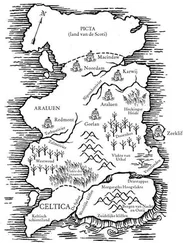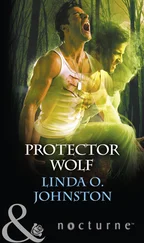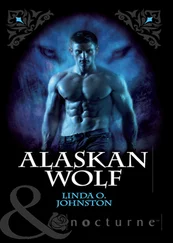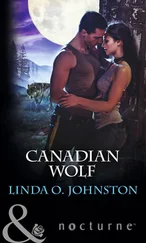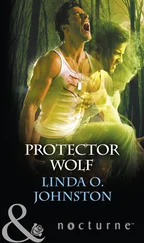“It actually starts with tissue removal,” he said, his voice getting livelier. “Because we — they — when you have a post-trauma reconstruction like the one you initially did, what they do is they take what’s left and then reshape it, and they graft skin and in your case bone and that’s how the reconstruction happens. But — and I don’t know where you, what you — what your thoughts are about surgery.”
I didn’t remember much about the early surgeries.
“Well, we used to heavily favor what’s called autografts, which is skin from the same patient, from somewhere else on your body. Or bone.” I knew about this. “But we have synthetic polymers now. And the equipment’s more accurate, which means we can work more quickly and get a much better result.” He took a breath, and I took a breath.
“It’s pretty dramatic,” he said, “some of the results.”
I was a little dazed; I usually start asking questions when I don’t know what to say, so that’s what I did. How many surgeries, how many sessions, how many times a week or month for how long.
“It varies,” he said. “It’s new. I don’t want to say it’s five sessions and then it turns out it’s ten. Or more. But four or five is sort of the starting point, it’s what we start out thinking about. It can be more. But it can be four, or five.”
“And how much—”
“We think insurance will cover a fair bit of it. But because—” When people break off I become immediately suspicious; I was suspicious. “Because it would be valuable to my colleague to practice his new technique, he thinks costs could be—”
This was a free shot.
“Well, we should meet up about it, anyway, sure,” I said, trying to sound as normal as I could: trying to make my reaction fit his expectations.
There was another little pause, a small emptiness, the distant sound of things he didn’t quite want to tell me yet. Or maybe not: I think sometimes I hear things as riddles that aren’t really riddles. “We should, yes,” he said with that tone of conclusion doctors get. “But if you’re interested I’d like to go ahead and schedule the first procedure, just to get you in there. It’ll take a few weeks to get the approvals process rolling. When surgeries are new the paperwork’s heavier. It won’t be much at all on your end, just a lot here in the office, but if we schedule it now we’ll be able to put the whole thing in motion.”
I said, “All right,” and he said, “Great,” but I had managed to do quite a bit of thinking between phrases, to look into various futures and think just enough about them to know if I liked them or not. I remembered the lights of the ambulance and the sound of the voices yelling. The chaos. The involuntary twitching in my toes, and the raw, open feeling all over my face. And then he said I should call the main office to make an appointment and to mention his name when I did, and that they’d “get me right in.” And he gave me the number, and I repeated it slowly as he went, doing my best to pretend I was writing it down.
Somebody’d parked a truck out in front with the windows down and the radio playing. It was really loud. The music was in Spanish so I couldn’t understand it; I only ever took one semester of Spanish and that was in the seventh grade. Sometimes if outside noise starts to bother me I’ll put some music on inside the house to blanket it over, or I’ll go to the park and feed squirrels, or maybe go get candy and hope it’s quieter when I come back. But for some reason I can’t pin down, I had a weird feeling of attachment to the music from the truck out by the curb. It wasn’t an intrusion; it belonged.
The driver was still in the cab: I saw him from my window. I was standing there taking in the early-morning breeze, these winds that’re native to Southern California, Santa Anas. They make the brush fires worse. His radio’d jolted me awake, but I didn’t really mind. He wasn’t singing along or nodding his head back and forth or smoking a cigarette or anything. He was sitting there staring straight ahead. Waiting for somebody, I guess. He was wearing some kind of work jumpsuit, like the guys at the auto shop wear, dull dark blue.
I had this rising premonition about him turning to look over at me, catching me in the act of sort of staring at him for no reason. It was a premonition with texture and heft, something I could almost taste; in my mind I saw his head begin to turn, casually, gradually but decisively, until his eyes found mine and held them. I stood ready for this to happen, wondering what I’d do, but he stayed put. He listened to the Spanish music and gazed out at the road ahead of him, steady through the windshield, and I got so worried he’d catch me that I began faking movements, pretending to survey the rest of my outlook in a broad sweep from right to left: the front walkway, the hedges, the street. When I swiveled my gaze back toward him he was starting up the truck.
I expected he’d just leave then, because it always seems to me like nothing ever happens, but something did happen: he began to back up. Monte Vista’s a busy street during the daytime, but it was too early for traffic and there wasn’t anybody parked in front of him, so I couldn’t figure out what he was doing. He checked the rearview very intently, his neck rigid, head still like a hawk, and then I realized, quickly, that he was accelerating in reverse, that there was another car parked behind his with enough gap between them to allow him to build up some speed.
The next minute — it couldn’t have been longer than a minute — went predictably: the gunning motor, the artificial thunder-crack of the crashing fenders, and then the fallout: things dropping from the cars’ frames to the asphalt, making ping sounds when they hit. In a movie version of this scene the driver wheels his glance abruptly to the window where a misshapen man stands watching it all unfold, and fixes me with a threatening look. That didn’t happen. He braced himself hard just before the collision, and after it he spent maybe fifteen seconds looking over his shoulder, surveying the damage as best he could from his restricted vantage point. Then he looked back into the rearview to check for cars. There weren’t any, so he shifted into drive and headed north, at a clip but not speeding away, eyes forward, his hands at ten and two.
Once he was gone you would have had to’ve stopped and looked around to know anything had happened. There was a good chance that the driver of the car he’d rammed wouldn’t notice he’d been hit for a day or two: if he came up to the driver’s side door from behind, he might not see anything. I thought about the guy in the truck, the focus in his expression, and I felt like I already knew enough of the story to tell it to somebody else maybe better than either of its major players could. But I didn’t call the police, even though I know you’re supposed to. And I hadn’t taken any notice of the guy’s license plate, or written down any of the details. I’d answer questions about what I’d seen if anybody asked me, but I know what I know. Nobody was going to ask. So I just stood there at the window for a minute more, and I heard a bird singing; and while I am a person who, for reasons I consider good, am reluctant to assign specific meaning to anything I see or hear going on out there in the natural world, I couldn’t get out of the way of a sort of prophetic feeling I assume everyone gets from time to time. I couldn’t see the bird, I didn’t know where it was; I told myself a few stories about it, how it was a migratory bird I’d happened to catch on just the right morning, separated from its company en route to cooler days; or again how it was dying, singing some cheerful dying song. Kids’ stuff, old stuff. And then I had a memory from childhood, not childhood really but a while afterward, but what felt, in that moment, like childhood.
Читать дальше

